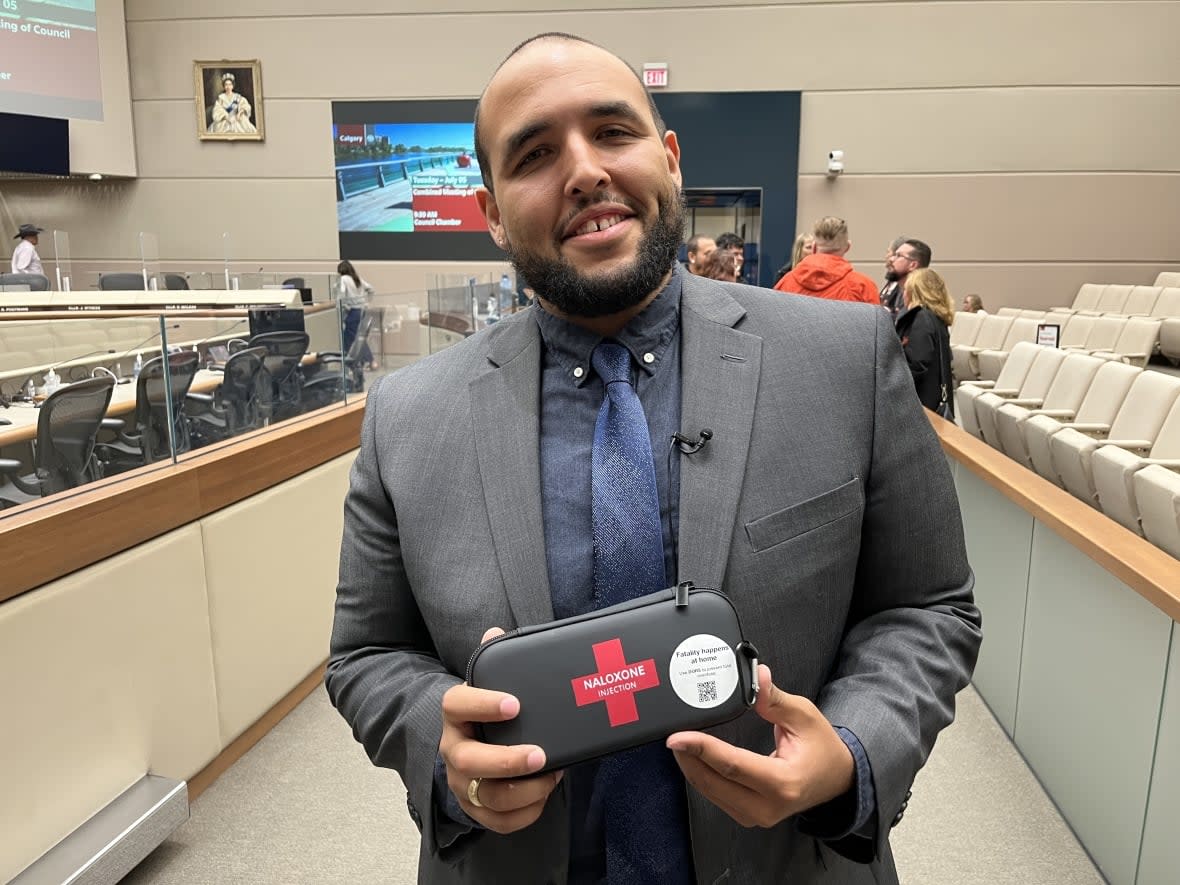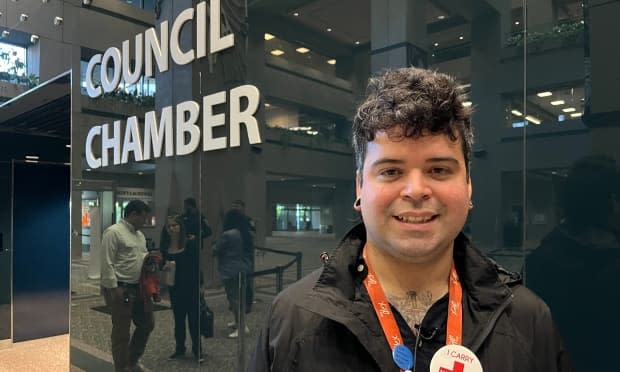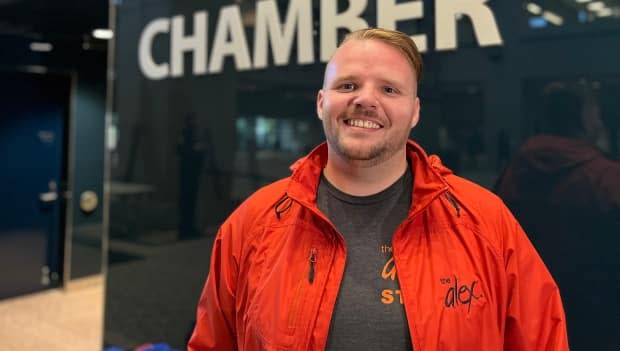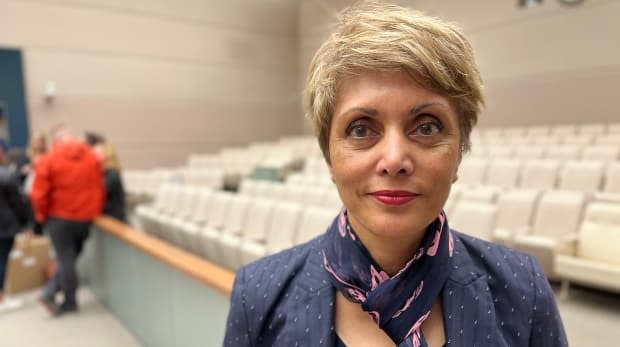Calgary city councillors trained on how to reverse an overdose with naloxone

Calgary city councillors were briefed Tuesday morning about how to use naloxone to reverse an overdose.
Amid an escalating number of drug-related deaths in Alberta, the session was part of a push by The Alex Community Health Centre to equip as many people as possible with the training.
"The status of elected official does not preclude you from saving someone's life," said Ward 8 Coun. Courtney Walcott, who helped organize the session.
"Every single one of us should be prepared to step in as necessary."
Last year was the deadliest year on record for drug overdoses in Alberta, with the province reporting more than 1,700 deaths. Most occurred in Calgary and Edmonton.

Sebastian Benavides, who leads The Alex's street team, said the crisis touches people from all walks of life — not just those who are "street entrenched." That's why just about anyone could benefit from learning how to use a kit, he said.
"Now more than ever, it's more important that not just service providers but community members and our neighbours are out there looking after our fellow community members," said Benavides.
Benavides believes council's willingness to take part in the training shows it's open to tackling an issue many people shy away from.
Training saved this man's life

The session also included remarks from David Fraser, one of the street team's peer support workers. Fraser, a former drug user, is now in recovery and abstains from drugs and alcohol. But he said he faced a lot of obstacles to getting help, including stigma and long wait times for treatment.
In the meantime, harm reduction approaches — including citizen naloxone training — helped keep him alive.
"For the amount of times I've overdosed — I think it was around 10 times — only one of those was an EMS response," he told council. "Everybody else was a citizen who ended up saving my life."
Fraser also spoke to the need for services like the street outreach team, which pairs people who've experienced addiction with trained social workers like Benavides.
"I get to build that trust," said Fraser. "And if something like that had existed [for me], you know, I believe that I could have gotten help much, much sooner."

Mayor Jyoti Gondek told CBC Calgary she believes the session will be useful not just from a practical perspective — so councillors know what to do in an emergency — but to inform city policy going forward.
"It's really difficult to make solid decisions when you're not actually understanding the lived experience," she said.
"It was a pleasure to be here today and to understand … what it is we need to know when we're setting those policies."


